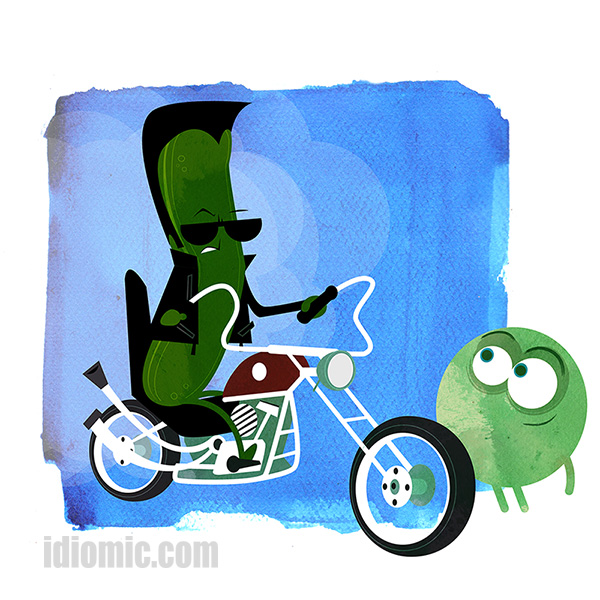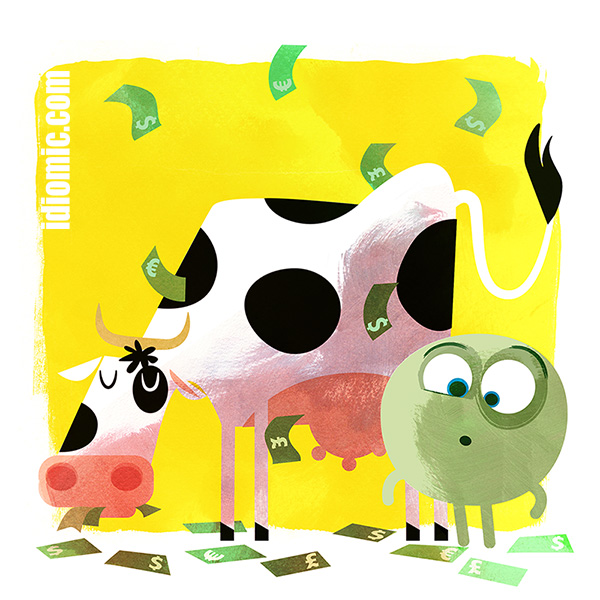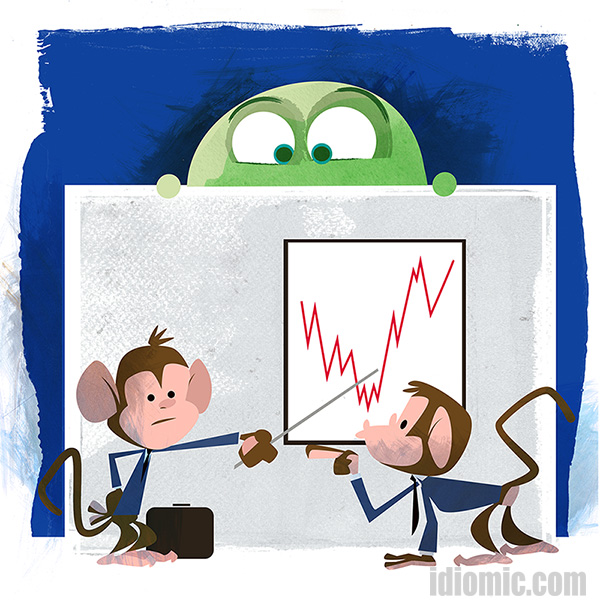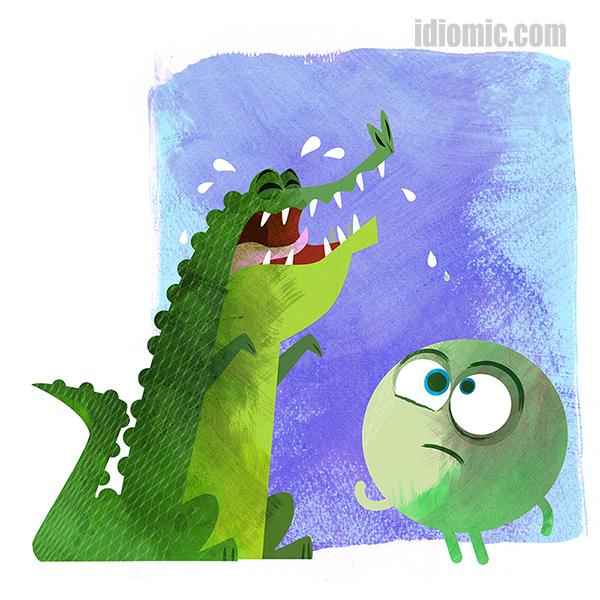Definition: To stay calm, composed, and collected
Example: Despite the intense pressure, Stan stayed cool as a cucumber and defeated his five-year-old nephew in the game of tiddlywinks.
Origin:
This is a strange one. How somebody’s bearing under pressure should be compared to a vegetable is not just unclear, it’s totally nonsensical on every level. Yes, cucumbers are cool to the touch, and can be as much as twenty degrees cooler inside than the outside air, but the cool in the phrase has nothing to do with temperature. And it’s older than you might think. Its first appearance in print is in a 1732 poem by John Gay.
Iddy, as pictured, has used the 1970’s derived definition of cool, that of somebody socially admired. Just like the Fonz was on Happy Days. Funny. Looking at him, you’d never have thought Iddy to be in awe of custom motorcycles….





